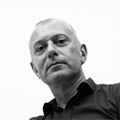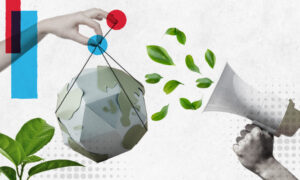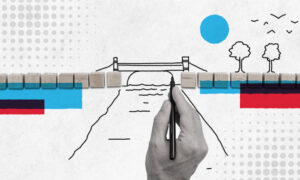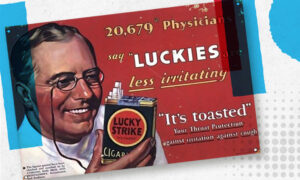Google announces that its roadmap sets the goal of zero carbon by 2030. This is good news, news that will surely please everyone, presumably including those who heard it in the car, waiting outside their girlfriend’s house, with the engine running. Not everything goes at the same speed, and that goes for awareness as well as engines, right?
But communication is flying, and not only Google’s. And it’s like democracy: it works when it is a perspective, not when it has perspective. It doesn’t have to be true today, just ready to become true tomorrow. But its effects are already here: carbon free in 2030, communication taking flight right now. It’s a bit like saying you can do things with words.
Thinking about the essence of the planet
Every time I think about sustainability, Martin Heidegger comes to mind. In the essay Building Dwelling Thinking, he asserted that we will truly begin to inhabit the world only when and if our thinking understands its essence. Until then our being here will be a violation. Except that for Heidegger humanity does not think correctly, and in a sense that is true. Reading the
newspapers, we too would be tempted not to be optimistic, if not for the fact that we can see some signs of change. Are they too late? Maybe, but the fact remains that we have begun to hear the call of the planet, and the most daring among us have even listened to it. And we are doing something to inhabit it better.
Green is making noise
Needless to say, the hashtag #sustainable is one of the trending topics on Instagram, and Instagram makes lots of noise. The term “sustainable” is the father of an extended family of concepts, which are also now part of everyday discourse, ranging from green to renewable to eco-friendly. But green transcends language: today it is legitimate to expect to travel on an (almost) zero impact bus or extract a serious discount from even the toughest car salesman for the purchase of an electric or hybrid vehicle. It is normal to expect that product packaging indicates the correct disposal method but also, more importantly, that the information provided on it is truthful. Green is supplanting greenwashing. In other words, we are really interested in the impact of that product, it’s not just a pose. Milan’s Bocconi University asserts that, unlike a decade ago, today 70% of millennials choose green, and exclude what is not green. Perspectives. And, if you think about it, the good news is that these changes now seem right to us; we feel we have done half of our duty, as demanding mothers used to say to us as children when we got a good grade in school.
Is advertising charting a way ahead?
The urgency of the sustainability issue is denoting shift from theory to practice as well as from simulation to reality. The transformation is underway, although still moving slowly. For example, you may remember the advert for a car that made flowers bloom by the side of the road as it drove by; they’ve got to be kidding, we thought. But, in the intentions of an advertiser, that was no lie. In a psychological sense, let’s call it projection, the illustration of an ambition, the direction of their research, what they would have liked to be able to do or know how to do at that precise moment in history, what should rightfully have already existed but did not yet. The issue of sustainability had already appeared in our conscience and the little lies we allowed ourselves in this area denoted good intentions. Sustainable intentions, in fact.
Natural beauty
Perhaps Heidegger would appreciate our cognitive progression the direction of sustainability. Whether we are enthusiastic about it or not, the way we inhabit the world must become sustainable. The duo of beauty and functionality must be enriched by a third element: sustainability. With one caveat. The term “sustainable” on the labels of some products does not simply indicate that they cost more. Sustainable indicates a certain type of relationship with oneself, with the world, with people, with nature, with the park bench and the birch tree in the garden, with the newspapers we read and the films we watch, with the coffee we drink and holidays in Madagascar. With our business, with our products and services, and with the way we communicate them.
We are moving towards a phenomenology of sustainability and it’s a compelling prospect. A radical change of register is the challenge we cannot ignore. We are called upon to endow artistic and aesthetic beauty, the beauty of makers and that of thinkers, with an attribute that has yet to be thought about and which, for precisely that reason, leaves ample room for freedom: sustainability.




